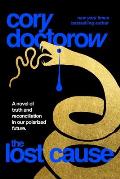Plastic Pollution Pandemic

One of my clients is a beachcomber. He writes about the myriad flotsam that makes its way from the oceans to our beaches, where that flotsam comes from, how it flows around the world. (Buy his book, if you like, or subscribe to his newsletter.) It's interesting generally, but since I took over the layout duties on his quarterly newsletter a few months ago (and thus reading all the articles more closely) I've been paying more attention to how our trash, specifically plastic trash, is not only dumped into our waterways but is essentially not disposable at all.
We've all been taught that we can recycle plastic, but it turns out that's not really true. A minority of the plastics we buy can be recycled (sort of), but the rest can't really be recycled at all under current technological limitations. When it is recycled, plastics can only go through the process between one and ten times depending on specifics, degrading each time and requiring more "fresh" material to mix in; in our current reality, it's usually not recycling at all but downcycling, a one-time-only re-use that turns, say, soda bottles into something like fleece or shoe parts.
The downcycling is useful, sure, and it'd be great if we could turn all of our plastic packaging and such into sweaters and sandals. But that has no effect at all on the production of new plastic, so no matter how many bottles become sneakers we're still piling up more and more and more plastic waste. And for now, anyway, even a downcycle is impossible for most things given the limitations of sorting facilities, mixed or contaminated plastic products, and poor-to-nonexistent market for crappy degraded materials.
And then there's the melting-down of plastics if they are recycled; great, they get repurposed, but we're burning fuels and creating different kinds of pollution to do it.
So, no matter how diligent we are about our recycling bin maintenance, most of our plastic trash ends up (a) in a landfill, (b) in the ocean, or (c) incinerated for fuel and adding to toxic air pollution. (Maybe all three, given enough time.)
Naturally, this has led me to want to consume less plastic. Which in modern American society is a lot harder than you might think. Really the only practical thing one can do is cut down on single-use plastics, i.e. stuff intended for short-term use that you can't repurpose yourself—basically packaging of various types. And straws, I guess. But so damn many things sold in your average supermarket come with plastic packaging. I avoid produce bags, I buy my Coca-Cola in cans instead of bottles, milk in paper cartons instead of plastic jugs. But single-use plastic is everywhere. Shrinkwrap. Packing foam. Bags for everything from tortilla chips to bread to hardware. Jars and bottles that once were glass are now plastic for condiments and salad dressings. You can't practically avoid it. So we buy it, we throw it away, it gets into the water, the ground, the air, our food, us. It never biodegrades.
Thus, like so many environmental concerns, the onus needs to be on manufacturers and governments to address this. Regulations, incentives, taxes, things that can prompt companies to reduce/eliminate plastic packaging and/or to use only types that can be handled by the limited recycling options available, as well as R & D for true recycling methods for plastics. "We are beyond the crisis point on plastic waste," says Senator Tom Udall (D, NM). Udall is quoted in this excellent piece from the latest Rolling Stone that gets pretty deeply into the history and scope of the problem; developments like bio-plastics and plant-based packaging are welcome advances, but meantime we're drowning in saran-wrap and take-out trays. We need more Udalls to lead. “We’re trying to turn the industry around,” he says, “to do this in a more environmentally sustainable way.”
I recommend reading the Rolling Stone article. And, somehow, buying less plastic.



Comments
No comments yet.
Add your comment
RSS feed for comments on this page
RSS feed for all comments